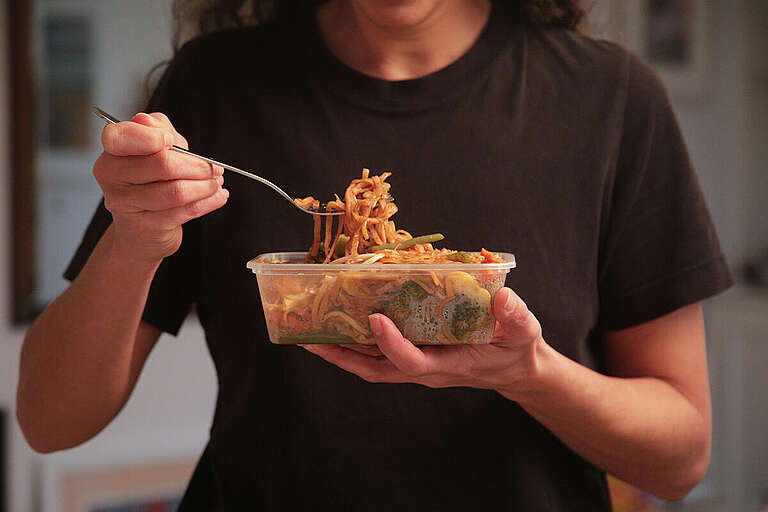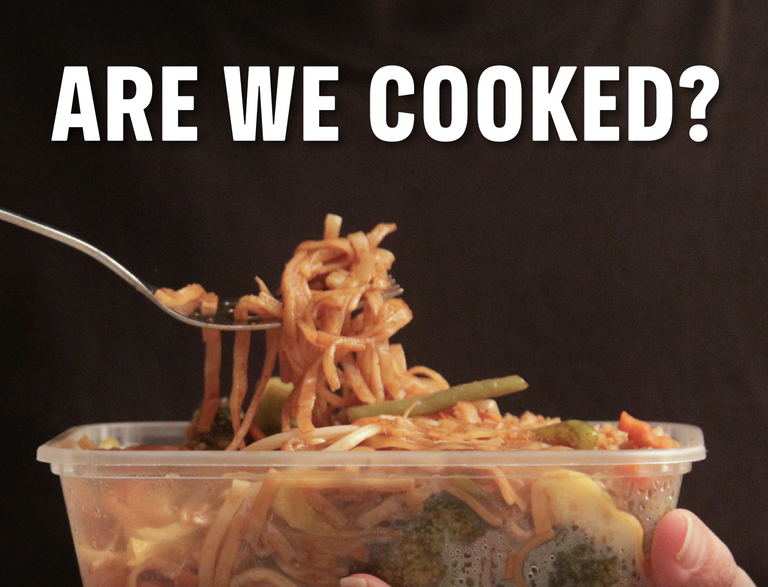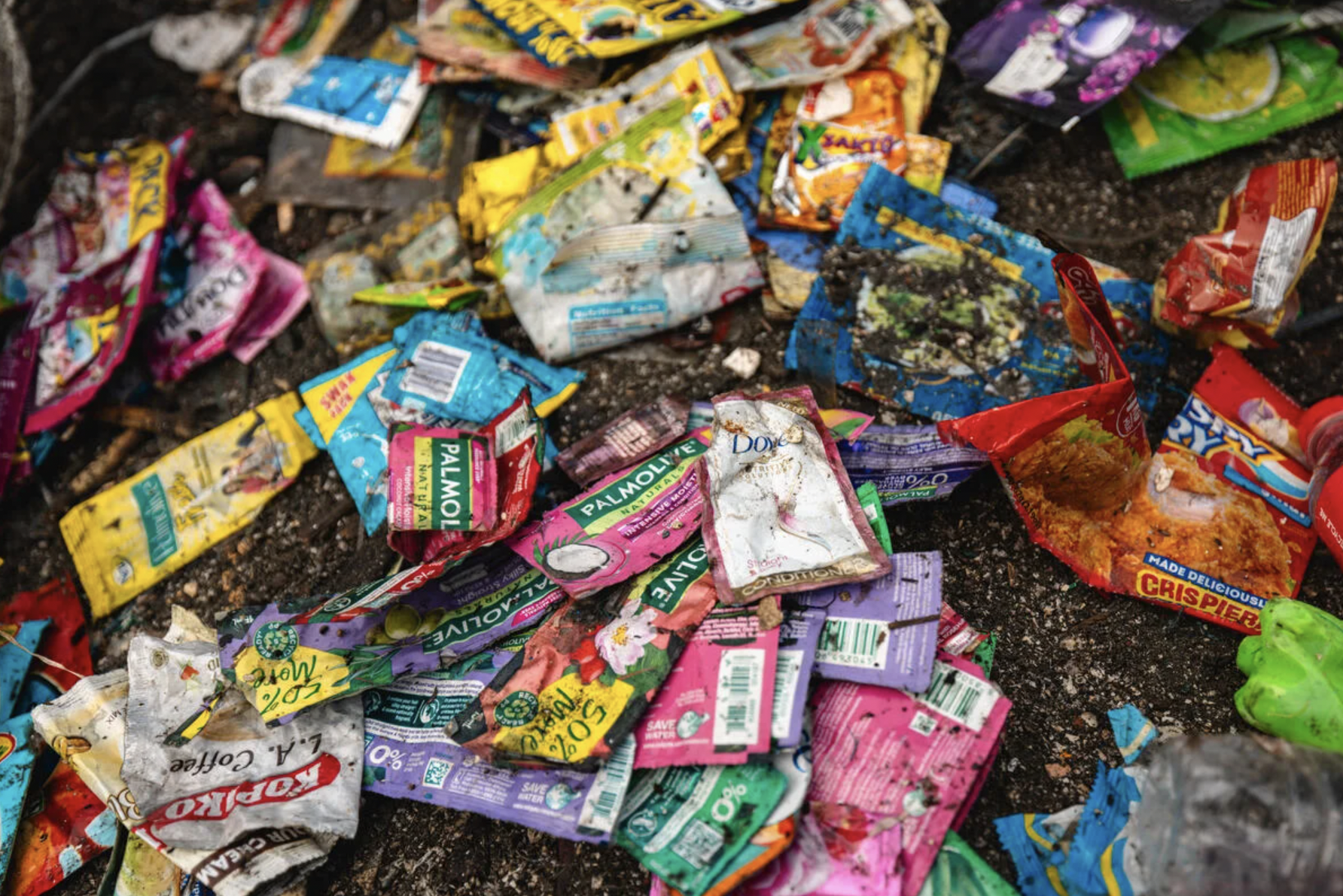Bangkok, 21 December 2024 – Greenpeace Thailand’s latest report “Beyond the Label: Debunking the Biodegradable Plastic Myth”, which examined the decomposition rate and potential for microplastic formation of bioplastics, concludes that so-called biodegradable plastic products are mislabeled, and therefore not a viable solution to end the plastic pollution crisis.
The study found that many products and packaging that are labeled as biodegradable do not degrade under any of the three tested conditions. The following products were tested: Inthanin’s PLA plastic cup, Smart-R Handle Bags, AdvanceBIO Handle bags, Smart-R plastic box, and UNI-WARE plastic boxes. Results from the experiment revealed that some of these products could tear into fragments with minimal degradation. Microplastic formation was also observed in several cases.
The testing was conducted by the Faculty of Marine Technology, Burapha University (Chanthaburi Campus), and Greenpeace Thailand. Eleven types of bioplastic products labeled as “made from natural materials” or “biodegradable” were tested for their decomposition rate and potential for microplastic formation. The products were tested in three environmental conditions: (1) Submersion in fish tanks with simulated seawater (161 days), (2) Immersion in seawater (135 days), and (3) Burial in soil (178 days).
The aim of the report is to encourage real and effective solutions to plastic pollution, raise consumer awareness about responsible production and consumption, and encourage informed decision-making about green or eco-friendly labeling. It also calls on brand owners and modern retailers to recognize their responsibility in solving the plastic crisis at the source with sustainable approaches.
Pichmol Rugrod, Plastic-Free Future Project Leader at Greenpeace Thailand, stated:
“Many products in the market attempt to rebrand themselves as eco-friendly by shifting from fossil-based single-use plastics to bioplastics made from plants or agricultural waste. However, our testing reveals that such a shift does not effectively address plastic pollution. Some bioplastics do not degrade as claimed and instead break into smaller pieces, contributing to microplastic pollution—a problem that is even harder to manage due to its invisibility.”
Key findings from the degradation tests:
Submersion in Simulated Seawater Environment
- Products that did not degrade: Inthanin PLA cups, Smart-R handle bags, UNI-WARE plastic box, AdvanceBIO handle bags, Mitr Phol sugar bags, Milo and Amazon plastic straws, and Smart-R Plastic Box. Product fragmented observed in: Watsons wet wipes, Lotus’s bagasse plates.
- Only All Café paper cups showed slight degradation.
Submerged in Actual Seawater
- Not degradable: Inthanin PLA cups, Smart-R handle bags, AdvanceBIO handle bags, UNI-WARE plastic box, Smart-R plastic box.
- 100% degraded: Milo paper straws, Watsons wet wipes, Lotus’s bagasse plates.
- Partly decomposed: All Café paper cups, Mitr Phol sugar bags, Amazon plastic straws.
Buried Under Soil
- Not degradable: Inthanin PLA cups, Smart-R handle bags, AdvanceBIO handle bags, UNI-WARE plastic box, Smart-R plastic box.
- Partly decomposed: All Café paper cups, Mitr Phol sugar bags.
- 100% degraded: Milo paper straws, Watsons wet wipes, Lotus’s bagasse plates. Amazon plastic straws degraded only 2%.
Study results on products containing microplastics in three environments:
- Simulated Seawater Environment: Inthanin cups (the color shedding from the packaging), Smart-R handle bags, UNI-WARE plastic box.
- Actual Seawater: All Café paper cups, Mitr Phol sugar bags, Amazon plastic straws.
- Soil: Mitr Phol sugar bags, Amazon plastic straws.
“Biodegradable plastic products may no longer be a viable solution. Corporations must go beyond inventing new plastic types and instead eliminate the throwaway culture. Sustainable change requires implementing reuse and refill systems that enable consumers to use packaging multiple times throughout its lifespan. Greenpeace believes that big corporations can be a leader of change and set a benchmark for reuse systems development in Thailand,” Pichmol Rugrod added.
Greenpeace Thailand presented these findings during the exhibition “Degradable or Not? Can Bioplastics Really Break Down?” last 17–28 December 2024 at the Bangkok Art and Culture Centre (BACC), Level L, alongside workshops to raise public awareness of plastic pollution. Follow updates on Facebook: Greenpeace Thailand.
Note:
Download the full report “Beyond the Label: Debunking the Biodegradable Plastic Myth”



